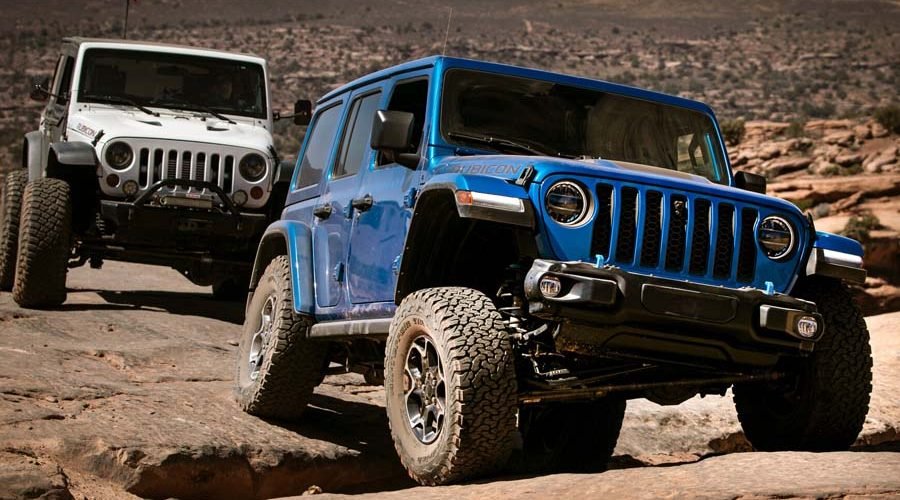Why do people love Jeeps so much? In 2019, Jeep sold 1.49 million vehicles around the globe. Jeep customers are also loyal and highly organized—huge interest groups have been centered on the brand since the 1950s.
The simple answer is this: Jeep is a culture. In this article, we delve into the mystery behind this culture and its supporters.
Table of Contents
About the Jeep
Jeep is a sports utility vehicle within the Chrysler brand, one of the Big Three U.S.-based automobile manufacturers. Chrysler is a subsidiary of Stellantis, the world’s fifth-largest automaker.
The original Jeep vehicles were used in World War II. They were used widely because they were rugged, strong, and could fit many passengers within their open structures.
When Jeep started manufacturing vehicles for civilian use, it maintained the brand’s functionality but streamlined the outer body.
Originally referred to as GP or general purpose, the name evolved into Jeep, which is a shortcut for the two-letter acronym.
Jeep is Fiat Chrysler’s most popular vehicle. It is especially popular in the U.S., where there are more than 2,400 authorized dealerships for mass distribution. Of the global Jeep sales, two-thirds are completed in the States.
Hundreds of thousands of Jeeps are manufactured each year. In 2021, nearly 205,000 units were sold in the U.S., and more than 18,500 were sold in Canada.
Experts advise owners to get an extended warranty when buying a Jeep.
The Jeep Culture
Did you know? When Jeep drivers pass each other on the road, they wave. It’s a Jeep thing; an established element of the culture of owners.
Why do Jeepers wave? It’s a sign of respect from one Jeep owner to another. There is an understanding of the shared characteristics among those who love the Jeep and drive them.
There are unofficial rules to the wave, too. For example, older Jeep models are considered higher in the hierarchy. So, a new Jeep owner must throw the first wave to the owner of a classic one.
When two similar models meet on the road, the Jeep with more accessories is considered superior. If all things are equal, the dirtier Jeep gets the respect because it means it is being used the way it should be: on off-road adventures.
But why is the Jeep culture so rich? How did it evolve?
1. A Nod to the Past
The Jeep is an important part of history. It served the military men who fought for the Allied Powers in World War II. The current Jeep models no longer look like the ones used in the war, but the strength it possesses is still there. And the relationship is strong enough to evoke nostalgia and respect.
The Jeep wave is also attributed to the war. Military men driving their Jeeps would wave or salute each other as a sign of respect, whether they knew each other personally or not.
2. Sense of Adventure
The Jeep is made for adventure. Its rugged features are specially designed for off-road driving in muddy or rocky terrain. Several people can squeeze into the vehicle, too. And for campers, canoers, and other outdoor hobbyists, there is more than enough space for various equipment.
This is also why Jeepers respect each other—they know that other owners likely share the passion for adventure.
3. Jeep Strives to Be Better
The brand doesn’t just depend on its practical nature or nostalgic memories of decades past. It aims to create a better model than the last.
One of Jeep’s latest innovations is the eTorque engine, which was introduced in 2018. The feature creates power when the driver brakes or steps on the accelerator for better fuel economy.
4. Old Models Don’t Get Old
Many vehicle owners prefer updating their cars every five years. In contrast, most Jeepers don’t mind their vehicles getting old because they just become classics.
In fact, the older your Jeep, the higher you are in the cultural hierarchy.
Join the Jeep Culture
There is no brand of vehicle that fosters camaraderie among strangers more than the Jeep. Jeepers don’t need to know the names or personalities of the drivers behind the wheel. As long as they are driving a Jeep, they know they are adventurous people who love a rugged vehicle steeped in such rich history.





